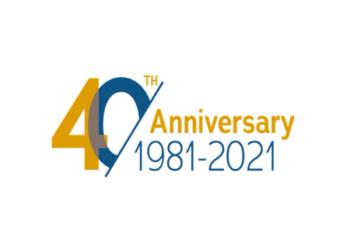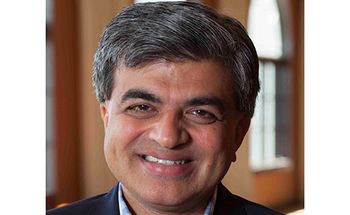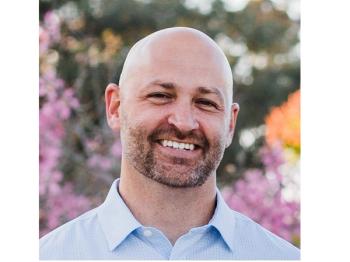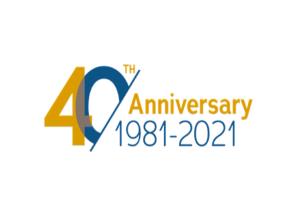
Biohaven CEO Vlad Coric talks to Pharm Exec about NURTEC ODT’s swift and seismic impact on the migraine market.
Julian Upton is Pharmaceutical Executive’s European and Online Editor. He can be reached at jupton@mjhlifesciences.com

Biohaven CEO Vlad Coric talks to Pharm Exec about NURTEC ODT’s swift and seismic impact on the migraine market.

Closing the gaps in complex therapy data remains a hurdle, but “getting clever” with AI can offer a path forward.

How Gilead readied remdesivir for the COVID challenge.

How the UK is making progress in this hi-tech field.

Looking Back at 1997–1999.

Amgen is collaborating on two digital health initiatives aimed at improving heart failure care and rehabilitation.

With COVID-19 severely disrupting the care of cancer patients in the UK, Astellas’ Jackie Williams talks about how UK pharma can partner with the NHS to address patient backlogs and support continuity of care.

Rosanne Rotondo talks to Pharm Exec about recent breakthroughs in the Novartis Foundation-initiated Leprosy Post-Exposure Prophylaxis and the work of Novartis’ other Global Health Flagship Programs.

A coalition of data, computational power, and AI is bringing the full potential of in silico medicine out of the realm of science fiction.

Recruitment of data scientists is much more than a numbers game.

Pratap Khedkar, managing principal for ZS’ global pharmaceuticals practice, talks to Pharm Exec about what companies need to focus on to achieve and optimize digital transformation in 2021 and beyond.

Sameer Lal and Sandeep Gantotti discuss the building of a next-gen medical information practice to modernize its operations and unlock its value to the wider organization and to HCPs.

Industry’s tardy shift to cloud-based solutions looks set to gather pace in 2021.

Looking back at 1981.

Kevin Foust, Senior Director of Research & Early Development at Novartis Gene Therapies, talks to Pharm Exec about his involvement in the development of Zolgensma, the first and only gene therapy approved to treat spinal muscular atrophy (SMA).

Samit Hirawat, chief medical officer at Bristol Myers Squibb, talks about his leading role in BMS’ $300M, five-year plan to expand its efforts in health equity and his career-long commitment to putting patients first.

To realize the promise of genomics, pharma must be prepared to mine the data more effectively.

With pharma increasingly exploring the therapeutic potential of psychedelic drugs, Pharm Exec looks at how three companies in this space are developing their pipelines.

Matt Ros, EVP, chief strategy and business officer of Epizyme, talks to Pharm Exec about his career in oncology and his role in transforming an epigenetics R&D company into a fully integrated commercial business.

Following her own experience, a health tech entrepreneur turned to AI to better guide other patients through their treatment journeys.

Report sets out self-assessment measures for low- and middle-income countries in their adoption of new health technologies.

Anne E. White, president, Lilly Oncology, talks about how the lessons she learned from leading a startup helped her to speed Lilly’s drug development from target identification through successful launch

New hope accompanies overdue recognition in sickle cell disease fight.

As we wait for a COVID-19 vaccine, pharma is looking to blockchain technology to prepare for the major supply-chain obstacles to come.

While exposing gaps in the way pharma acquires and uses data, the pandemic has also fostered a new spirit of information sharing that bodes well for future collaborations.

Their application for security and anti-counterfeiting purposes continues to evolve, especially in combination with digital technology.

New DTC campaign for its vaccine Zostavax uses a more serious, personal messaging approach-as pharmas look to close the conversation gaps between patients and healthcare providers.

The confirmation of Pfizer’s bid for an outright acquisition of AstraZeneca has drawn mixed reactions from the UK.

A report published yesterday provides recommendations for combating the “significant inequalities” affecting access to quality cancer care in Europe.

The UK National Institute for Health and Care Excellence’s (NICE) decision that relapsed non-small cell lung cancer patients should no longer have access to Roche’s cancer pill Tarceva (erlotinib) is a setback for lung cancer care in England and Wales.

Published: June 9th 2021 | Updated: October 8th 2021

Published: August 7th 2020 | Updated: August 11th 2020

Published: April 13th 2021 | Updated: April 15th 2021

Published: January 13th 2021 | Updated: January 14th 2021

Published: September 11th 2020 | Updated: September 15th 2020

Published: February 15th 2021 | Updated: February 16th 2021